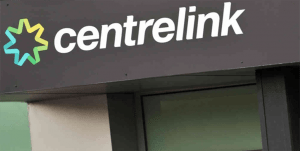 Initial figures following the introduction of a cashless welfare card in Ceduna have shown many positive results, including a decline in the amount of money being spent on the pokies.
Initial figures following the introduction of a cashless welfare card in Ceduna have shown many positive results, including a decline in the amount of money being spent on the pokies.
Ceduna, a regional South Australian town on the west coast of the Eyre Peninsula, is one of the first towns in the country to trial the cashless welfare card. The cashless debit card trial is part of a Commonwealth Government initiative to improve disadvantaged communities and reduce the consumption and impact of drugs, alcohol and gambling. It looks and works just like a normal bank card, except that it can’t be use to withdraw cash, and cannot be used to buy any alcohol or gambling related products.
The card aims to ensure welfare money is being spend on essentials, like food, utility bills and child care.
In Ceduna, all residents of working age who are receiving income support payments from Centrelink are undergoing the mandatory cashless welfare card trial, with 80% of their Centrelink income paid onto the cashless card and 20% of their Centrelink income going into their regular bank account.
Figures obtained by SA newspaper The Advertiser have revealed close to a $100,000 decrease in the amount of revenue spent on the pokies in Ceduna in September 2016 compared to the same time the previous year.
The independent report also revealed that 80% of card holders have reported they now drink less, with one in five card users taking illegal drugs less. Half the residents in the community noted less drinking and anti-social behaviour in the area. The number of people seeking homeless services also decreased dramatically.
Six months into the trial, Howard Coote from the Regional Development board said that a van delivering food and supplies to a nearby Indigenous community was making runs twice a week instead of once a fortnight, suggesting that funds were being better spent on household products.
While preliminary reports have been encouraging, official statistics won’t be released until mid-2017.
Human Services Minister Alan Trudge said, “A summary of some of the findings from the initial report were provided to Ceduna community leaders, as the key stakeholders in the trial. The document is not public yet, but we are encouraged by the progress being made in reducing the gambling and alcohol consumption which underpins so much of the social problems.”
However, it’s not all good news. Anecdotal evidence has suggested people are finding a way around the cashless restrictions, including purchasing gift cards and converting them to cash and forming a black market to exchange cigarettes for money. It’s also been suggested that many Ceduna residents have moved or changed their addresses as a way of getting around the restrictions.
The cashless welfare card trial will wrap up in the next few months. It is also being trailed in the East Kimberley region.

If the figures are true, there’s no arguing that a decrease in the amount of money being spent on the pokies and alcohol is a highly positive outcome for the cashless card trial. You’d be hard pressed to find anyone who wasn’t in favour of more money being spent on children, families and personal care than being sucked into the pokies.
However, the very notion of the cashless welfare card is arguably what many Aussies are calling a restriction of basic human rights. Should a government have the right to tell an individual how and where they can spend their money, just because that income is government supported? Should a person who is genuinely struggling to find a job or who is unable to work while caring for children have to face the humiliation of paying on a welfare card every time they need basic supplies?
If the government doesn’t want people spending their money on the pokies, shouldn’t they just ban the machines completely instead of subjecting people to the shame associated with cash restrictions? Or spend more money and resources educating low income welfare recipients on how to better manage their money?
We don’t have the answers, but we’re certainly interested to see what the official reports reveal once the trial comes to an end. If deemed a success, the cashless welfare card could roll out in various regions across Australia. This could mean a dramatic drop in pokies revenue for many club and pub operators who rely on income gained from the poker machines, which could open up a whole new can or worms. Is this a classic lose/lose situation? Only time shall tell.